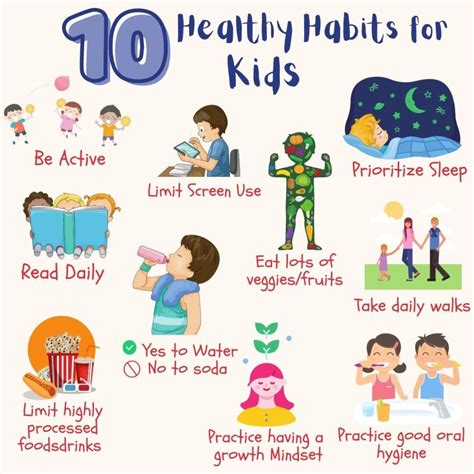As a parent, ensuring your child grows up healthy and strong is a top priority. One crucial aspect of their health is vaccinations. Vaccines are a safe and effective way to protect your child from serious diseases. Here are 10 essential tips to help you navigate the world of childhood vaccinations and keep your kids healthy:
Understanding Vaccine Schedules The Centers for Disease Control and Prevention (CDC) recommends a specific vaccination schedule for children from birth to 18 years old. This schedule is designed to provide protection against 14 serious diseases, including measles, mumps, and whooping cough. Staying on track with this schedule is vital to ensure your child is fully protected.
Importance of Vaccination Vaccines not only protect your child but also help prevent the spread of diseases in the community. By vaccinating your child, you’re also protecting those around them who may not be able to receive vaccines due to certain medical conditions. This concept is known as herd immunity, and it plays a critical role in preventing outbreaks of serious diseases.
Types of Vaccines There are several types of vaccines, including inactivated (killed) vaccines, live attenuated vaccines, and conjugate vaccines. Understanding the differences between these types can help you make informed decisions about your child’s health. For example, live attenuated vaccines, such as the MMR vaccine, provide long-lasting immunity but may not be suitable for children with weakened immune systems.
Common Vaccine Misconceptions Despite the overwhelming scientific evidence supporting the safety and effectiveness of vaccines, misconceptions still exist. For instance, some people believe that vaccines can cause autism, a claim that has been thoroughly debunked by numerous studies. It’s essential to consult reputable sources, such as the CDC and the World Health Organization (WHO), to get accurate information about vaccines.
Vaccine Side Effects Like any medication, vaccines can cause side effects. Common side effects include redness and swelling at the injection site, fever, and fussiness. These side effects are usually mild and temporary, resolving on their own within a few days. In rare cases, more serious side effects can occur, such as an allergic reaction. If you have concerns about vaccine side effects, discuss them with your child’s healthcare provider.
Staying on Track Keeping track of your child’s vaccination schedule can be overwhelming, especially if you have multiple children. Use a vaccination tracker or mobile app to stay organized and ensure your child doesn’t miss any important vaccinations. You can also consult with your child’s healthcare provider to create a personalized vaccination plan.
Travel Vaccinations If you’re planning international travel with your child, it’s essential to consult with your child’s healthcare provider about any additional vaccinations they may need. Some countries require specific vaccinations, such as the yellow fever vaccine, to prevent the spread of diseases. Don’t forget to also take general travel precautions, such as packing a travel health kit and taking steps to prevent insect-borne illnesses.
Vaccination Records Keeping accurate vaccination records is crucial in case of an outbreak or if your child needs to attend school or daycare. Make sure to obtain a copy of your child’s vaccination record from their healthcare provider and keep it in a safe and accessible location. You can also consider digitizing your child’s vaccination record to make it easier to share with healthcare providers or schools.
Special Considerations Some children may require special consideration when it comes to vaccinations, such as those with weakened immune systems or certain medical conditions. If your child has a pre-existing condition, consult with their healthcare provider to determine the best vaccination plan for them. In some cases, your child may need to receive additional vaccinations or take extra precautions to prevent the spread of diseases.
Consulting with Your Child’s Healthcare Provider If you have concerns or questions about vaccines, don’t hesitate to consult with your child’s healthcare provider. They can provide personalized guidance and address any concerns you may have. Remember, vaccines are a critical component of your child’s overall health and well-being, and staying informed is key to making the best decisions for their health.
What is the recommended vaccination schedule for children?
+The CDC recommends a specific vaccination schedule for children from birth to 18 years old. This schedule includes vaccinations against 14 serious diseases, including measles, mumps, and whooping cough.
Are vaccines safe for my child?
+Yes, vaccines are safe and effective. They have undergone rigorous testing and have been proven to provide long-lasting protection against serious diseases. Like any medication, vaccines can cause side effects, but these are usually mild and temporary.
What are the benefits of vaccinating my child?
+Vaccinating your child not only protects them from serious diseases but also helps prevent the spread of diseases in the community. This concept is known as herd immunity, and it plays a critical role in preventing outbreaks of serious diseases.
How do I keep track of my child's vaccination schedule?
+You can use a vaccination tracker or mobile app to stay organized and ensure your child doesn't miss any important vaccinations. You can also consult with your child's healthcare provider to create a personalized vaccination plan.
What are the consequences of not vaccinating my child?
+Not vaccinating your child can put them at risk of serious diseases and also increases the risk of disease outbreaks in the community. Unvaccinated children can also spread diseases to those around them who may not be able to receive vaccines due to certain medical conditions.
Can I delay or space out my child's vaccinations?
+Delaying or spacing out vaccinations can leave your child unprotected against serious diseases. It's essential to follow the recommended vaccination schedule to ensure your child is fully protected. Consult with your child's healthcare provider if you have concerns about the vaccination schedule.
By following these 10 essential tips and staying informed about vaccines, you can help keep your child healthy and protected against serious diseases. Remember, vaccines are a critical component of your child’s overall health and well-being, and staying on track with the recommended vaccination schedule is vital to ensuring their long-term health and happiness.


